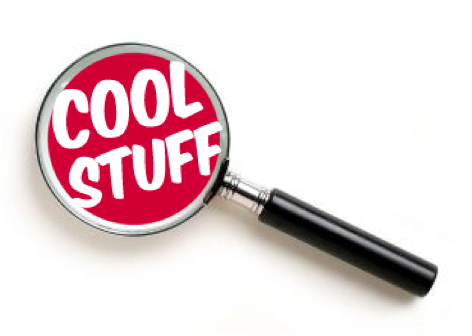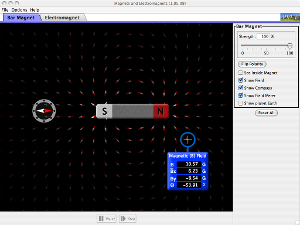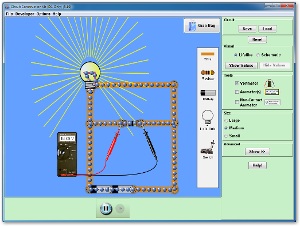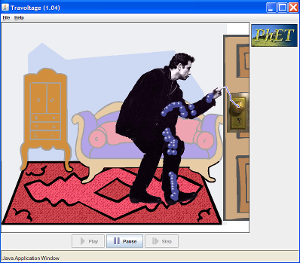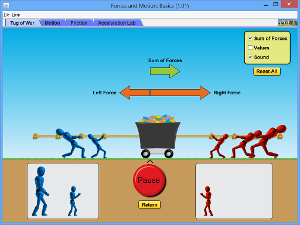
Stand up for Learning! Google Slides Presentation
>>Students: Log in to Study Island here.
- Your username has the following format: yourchromebooklogin@wvl (ex: 123456@wvl)
- Your password is: your chromebook password
(2015 - 2016)
- Scientist Biographies
- More Scientist Biographies
- Even More Scientist Biographies
-
http://www.ducksters.com/biography/scientists/scientists_and_inventors.php
- Create and Study Force & Motion Flashcards of Science!
- Force & Motion Interactive
- Friction Interactive
- Gravity Interactive
Stand Up For Learning Survey(no longer available)
- Interactive Activities - Motion
- Rock and Roll
- Amusement Park Physics
- Done with those two? Try any of the interactives on this page.
- The Science-y Science of Motion!
- Bill Nye - Motion
- Gross Science: How Far Do Sneezes and Vomit Travel? (COVER!)
- Solar System Assessment #1 Study Guide - includes simple answers and links to explainer videos!
- Space Rocks
>> Solar System Assessment Tuesday, November 24!! <<
- Done with your Google Classroom Explorers Assignment? Then, do this!
- Read: Our Very Own Star: The Sun (NASA)
- First, click the Daylight Map
- Next, follow the instructions on the worksheet.
Grab your Chromebook and do the following:
- First, click here to visit BBC KS2 Science - Earth, Sun and Moon
- Play the interactive Earth, Sun and Moon game
- Click "Read" below game to learn more about the Earth, Sun and Moon system
- Click the "Quiz" button to test your knowledge!
- When done with the quiz, raise your hand to show Mr. H your score
- Next, click here to work with an interactive activity about the solar system (**you may need to occasionally click the Pause/Play button to make the video continue)
- Finally, click here to experiment with the Earth, Sun and Moon interactive
- When the activity is complete, click the yellow "Quiz" button to test yourself
- All done? Check this out!
- Way-Back Wednesday: Parasitism!! (This is pretty gross!!)
- The Earth, Moon, Sun System
Baby owl regurgitates a pellet! SO adorable!!
>- Solar System
- Ecosystems Assessment Wednesday, October 7!
- Study Guide:
- End of Mystery Assessment Doc
- Reading - A Whale of a Find
- We Can Use Fossils to Learn About Paleoecology (interactive lesson)
If you complete the above 3 items, you are to go to Explore Learning and work toward completing any one of the three available Gizmos.
- Energy Pyramids
- The Amoeba Sisters on Energy Pyramids
- Food Web Check-up
- S.E.E.D. Backyard Card Activity

- All about Rocks and Minerals (Thanks Mary and Emory!)
- First, go to ExploreLearning.com and find your class page
- Choose the Summer and Winter Gizmo
- Complete the Student Exploration Guide
- Second, you may choose to work on any of the following (if they are not yet complete):
- Study Island Assignment
- First, go to ExploreLearning.com and find your class page
- Choose the Heat Absorption Gizmo
- Complete the Student Exploration Guide
- Second, you may choose to work on any of the following (if they are not yet complete):
- Scientist BioPoem
- European Explorers Research Google Doc
- Study Island Assignment
- First, ask yourself, "Do I need to complete the Fan Cart Physics Gizmo from Monday?"
- If your answer is YES, then click here.
- If your answer is NO, then keep reading...
- Now, ask yourself, "Did I finish the Study Island assignment from Monday?"
- If your answer is NO, then click here.
- If your answer is YES, then keep reading...
- If the above two items are 100% complete, then you may begin work on your Scientist BioPoem:
- Your Task: Use the links below to research a scientist whom you find interesting. Fill in your Biopoem Template worksheet using the information you discover (I shared this to your Google Drive).
- Scientist Biographies
- More Scientist Biographies
- Even More Scientist Biographies (Nobel Prize winners organized by area of study)
- Here is an example of what your finished product might look like:
Benjamin
Inhabitant of Philadelphia
Who lived from 1706 to 1790
Inventor of the Franklin stove, bifocals, and the lightning rod
Who discovered the power of electricity
Who helped many future Americans with his ideas
Who tried to share his multiple gifts in many ways
Who today would be amazed at modern scientific progress
Gifted, talented, creative, inventive
Genius!
- And, another example:

- Research Day: What Do I Not Know about Sound?
- Today, you will use the following links to research sound. Your assignment is to use what you learn to answer the question, "What do I NOT know about sound?"
- INSTRUCTIONS:
- Create a new Google doc and name it "Sound Your Name" (ex: Sound Mr. Henricksen)
- Share the doc with me --> henrickc@westerville.k12.oh.us
- At the top of the page in your new doc, type "What I Do NOT Know About Sound" (click here for an example)
- Below that, type your question
- Skip down a space or two, and write 1 - 2 paragraphs explaining what you learned that helped to answer your question
- Gizmos - Hearing: Frequency and Volume
- Study Island - Sound
- Gizmos - Waves (as in, sound waves, light waves, etc.)
- Log in using the green button in the upper right hand corner of the page
- Click the tab for your homeroom
- Click the "Waves" Gizmo to begin
- Introduction to Sound
- I have shared 2 documents with you:
- Forces and Motion guided Notes
- Introduction to Forces and Motion PowerPoint
- Using the above, complete the following Forces and Motion Quiz:
- Finally, raise your hand and report your score to Mr. H
- Study Jams - Force and Motion
- Watch the video
- Test Yourself
- Study Jams - Newton's First Law: Inertia
- Watch the video
- Test Yourself
- Study Jams - Newton's Second Law: Acceleration
- Watch the video
- Test Yourself
- Click over to the Science Videos page for a cool video about why mirror images appear reversed!
Tuesday, February 17
Tuesday, February 10
- Read either Force & Motion (word count 1,484)
- Force & Motion (word count 1, 749)
- In your Science notebook, copy and define vocabulary terms as you read (see glossary for help).
- Study Island
- Go to the Social Studies page!
- Seasons Guided Notes (also see Seasons presentation below)
- Seasons Presentation
- Computer Lab
- Ohio Science Performance Based Assessment Practice Problems
- Do these SECOND:
- Click here to go to the Practice Test Sign In page, then...
- Click the SIGN IN button
- Choose "5" from the Student Grade Level drop-down menu
- Click the YES button
- Click Start G5 Science PBA
- Click the Select button
- Click the Yes, start my test button
- Click the Begin test now button
- The Sun and The Seasons
- Study Island - Science
- Collaboratively learning about Earth's Seasons
- Study Island - Light & Color
- Color Wheels of Science! Here's a link to what we did in class.
Tuesday, December 16

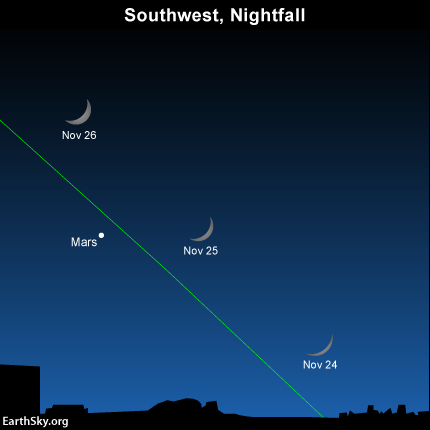
- Comets! Meteors! Asteroids! Oh, Myyyyyy!
- Notes from class:
|
Although there can sometimes be a blurry line between categories the following definitions should help you understand the difference between comets and asteroids, why Halley’s Comet is not a meteorite and more. Comet
Asteroid
Meteoroid
Meteor A meteoroid that burns up as it passes through the Earth’s atmosphere is known as a meteor. If you’ve ever looked up at the sky at night and seen a streak of light or ‘shooting star’ what you are actually seeing is a meteor. Meteorite
|
Friday, November 21
- In honor of humanity's first-ever landing of a spacecraft on a comet, we watched...
- Today, humans will land on the surface of a comet that is about 500 million km from Earth! How are we doing this? SCIENCE! See more here.

- That's North America superimposed on Jupiter! Click for more:
- Click to watch the video, "Birth of the Solar System". Answer the following questions in your Science notebook:
- Next, visit this page to learn about the movements of the Earth, Sun, and Moon. Be sure to take the QUIZ!
- Finally, use your mouse to tour the solar system and learn some awesome facts! (Click the "LAUNCH INTERACTIVE" button to get started)
Monday, October 20
- Time for Kids - SPACE (complete T-chart worksheet)
- Cosmic Bodies Size Comparison:
- What are owl pellets?
- Baby owl regurgitates a pellet! SO adorable!!
- Bill Nye the 9th Grade Science Kid:

- First, go to StudyJams; View "Symbiosis" video, then "Test Yourself".
- Next, log in to Education Galaxy; Choose "My Study Plan" (purple bar), then choose "National Science". Work in ANY Science topic until end of computer lab time.
- Click to go to the Science Spot - Kids Zone website to complete the biomes worksheet.
- Ecosystems Unit Assessment #1
- Ecosystems Assessment this Wednesday! Use your flashcards to review.
- Flash Cards:
- Food Web Practice
- MetroParks Naturalist visit!
- Learn to log in and use Education Galaxy (see above)
Tuesday, August 19
-
Ecosystems
(2013 - 2014)
Magnetism - StudyJams! (view slideshow, then Test Yourself!)
Magnets - BBC Ks2
I Didn't Know That - Magnets
- Magnets & Springs - BBC Ks2
- Magnets & Compasses - Harcourt Science
Electricity Review - StudyJams!
Click to run:
Bill Nye on Static Electrical Charges
Lightning is (a discharge of) Static Electricity!
Wednesday, April 2
- Weather (4th grade)
- EdHeads
- BBC - What is Weather?
- Evaporation
- Cloud Matching Game
- StudyJams! - Water Cycle (Watch Video, then Test Yourself)
- Rocks & Minerals (3rd Grade)
- Go to StudyJams! - Sound.
- View the video.
- Take the test.
- When you have completed the test, raise your hand so that Mr. H can record your score.
Ocean Odyssey
-
BBC Physical Processes - Light
- StudyJams! Light
- First, watch the video.
- Second, click the Test yourself button.
-
BBC Physical Processes - Light and Shadow
- StudyJams! Light Absorption, Reflection & Refraction
- First, watch the video.
- Second, click the Test yourself button.
- Done with all of the above links? Then go to Education Galaxy and practice some Science!
- Your username is like this: firstnamelastname
- Your password is: galaxy
- Tuesday, February 11
- Ecosystems Review
- More Forces and Motion!
- Forces and Motion Lab
- Today, you will use what you have learned about forces and motion to complete the following activities.
- Forces Lab Experiments:
Wednesday, January 29 (a snow day)- Hey, kids! I know you love sugar. Most humans do, and there are evolutionary reasons for that. However, too much sugar can lead to all sorts of health problems later in life. Here's an interesting way to visualize how much sugar is in some of your favorite food and drinks: Sugar Stacks.
Friday, January 24- Students: Complete the following in order -
- Watch the video about Forces and Motion
- After watching the video, click the blue "Test Yourself" button on the Study Jams! page
- After completing the Forces and Motion Study Jams! test, click here to work through "The Parkworld Plot!"
- If time remains, you are to log in to Education Galaxy and practice Science
Thursday, January 23- Solar System Assessment of Science
Wednesday, January 15- 1) Please click the link below to complete a quick survey.
- 2) Log in to Education Galaxy and practice your Science-y skills of Science!
Monday, January 13
- Comets! Meteors! Asteroids! Oh, Myyyyyy!
- Notes from class:
Although there can sometimes be a blurry line between categories the following definitions should help you understand the difference between comets and asteroids, why Halley’s Comet is not a meteorite and more.
Comet
- A comet is a relatively small solar system body that orbits the Sun. When close enough to the Sun they display a visible coma (a fuzzy outline or atmosphere due to solar radiation) and sometimes a tail.
Asteroid
- Asteroids are small solar system bodies that orbit the Sun. Made of rock and metal, they can also contain organic compounds. Asteroids are similar to comets but do not have a visible coma (fuzzy outline and tail) like comets do.
Meteoroid
- A meteoroid is a small rock or particle of debris in our solar system. They range in size from dust to around 10 metres in diameter (larger objects are usually referred to as asteroids).
Meteor
A meteoroid that burns up as it passes through the Earth’s atmosphere is known as a meteor. If you’ve ever looked up at the sky at night and seen a streak of light or ‘shooting star’ what you are actually seeing is a meteor.
Meteorite
- A meteoroid that survives falling through the Earth’s atmosphere and colliding with the Earth’s surface is known as a meteorite.
Wednesday, December 11- Today, we viewed a portion of the video, "Planet Earth: Great Plains". Students were challenged to recall information from our ecosystems unit and apply that knowledge to events depicted in the movie. Following the viewing, we joined Mr. M's class for the first round of Solar System Research Presentations.
Thursday, December 5- Watched NOVA's "The Pluto Files" and learned how Pluto was discovered, as well as why it is now classified a Dwarf Planet/Trans-Neptunian Body, and no longer the ninth planet in our solar system.
Tuesday, December 3
Thursday, November 21
Tuesday, November 12
- Earth, Moon, Sun System #1
- Earth, Moon, Sun System #2
- What is a Planet? - NASA:
Thursday, November 6
Wednesday, November 5- Day and night on Earth are caused by Earth's rotation in relation to the Sun.
- Bill Nye on Outer Space:
Friday, November 1
- Watch as legendary Canadian astronaut, Chris Hadfield, teaches us earthlings about life aboard the International Space Station:
Thursday, October 31
- We watched a NASA-produced video entitled, "Journey to the Stars".
- In the computer lab, students logged into their Education Galaxy accounts and worked toward completing a grades 3-4 science assessment. Then, they practiced their science knowledge by working through different topics, earning Education Galaxy stars along the way.
Wednesday, October 30
- Log in to Education Galaxy
- Your username has the following format: firstnamelastname
- Ask Mr H. for the password!
Tuesday, October 29
- Notes from today:
- Important characteristics of Earth:
- Third planet from the Sun
- Fifth largest planet in our solar system
- Within the Inner Solar System
- Small & Rocky
- Densest planet in solar system
- 4.5 – 4.6 billion years old!!
- Elliptical Orbit
- Important characteristics of The Sun:
- One of about 100 billion stars in our galaxy
- Diameter: 1, 390,000 kilometers (1.4 million km)
- Surface temperature = about 5,500° C
- The Sun is by far the largest object in the solar system. It contains about 99.8% of the total mass of the Solar System. Jupiter contains most of the rest
- The Sun is about 70% hydrogen (H) and 28% helium (He)
- The surface of the Sun is called the photosphere
- The Sun (“our star”) is a medium-sized star
Monday, October 28
- Today, we began our unit on the solar system!
Tuesday, October 22
- Complete your Scientist BioPoem (see new examples below)
- Compose your BioPoem in Microsoft Word. Save it to Mr. M's Class folder with the file name "BioPoem Your Last Name".
- Visit the following website and complete the Food Webs Quiz: Food Webs Quiz
- When you are done with the quiz, click the "Check Score" button, then raise your hand so that Mr. H can record your score.
-
Friday, October 11
- Your Task: Use the links below to research a scientist whom you find interesting. Fill in your Biopoem Template worksheet using the information you discover.
- Scientist Biographies
- More Scientist Biographies
- Even More Scientist Biographies (Nobel Prize winners organized by area of study)
- Here is an example of what your finished product might look like:
Benjamin
Inhabitant of Philadelphia
Who lived from 1706 to 1790
Inventor of the Franklin stove, bifocals, and the lightning rod
Who discovered the power of electricity
Who helped many future Americans with his ideas
Who tried to share his multiple gifts in many ways
Who today would be amazed at modern scientific progress
Gifted, talented, creative, inventive
Genius!
Franklin- And, another example:
 Thursday, October 3
Thursday, October 3Wednesday, October 2
- We worked on the following short answer question in class:
- The Fish-Tongue Eating Isopod of Science! WARNING: This is GROSS!!)
Friday, September 27
- Update: Fifth graders will present and play their Photosynthesis Games of Science with third graders on Tuesday, October 1. Can't wait!!
- What should you do on a sunny Friday when you don;t have to go to school? Watch a video on Photosynthesis, of course!
Monday, September 23
- Students continue to work in their groups to complete their "Photosynthesis Game of Science". They will play these games with 3rd grade classes later this week!
Tuesday, September 17
- Ecosystems Practice
Monday, September 16
- Students worked in small groups to demonstrate their understanding of a food web
- Began working toward mastery of ecosystems vocabulary
- BONUS: Food Webs video @ StudyJams!
Tuesday, September 10
- The fifth grade S.E.E.D. field trip was a great success! The students participated in a variety of activities led by Columbus MetroParks naturalists. Everyone had a blast getting their hands dirty while developing serious science skills. For more information on this terrific, standards-based program, follow the link below:
- Pictures from our trip:

Friday, September 6th
- Score science warm-up & graph results
- Science-y Practice Questions of Science!!
Friday, August 30th
- Bill Nye - Food Webs
Thursday, August 29th
- BBC ks2 Science - Food Chains
- BBC ks2 Science - Plant & Animal Habitats
- BBC ks2 Science - Plant Life Cycles
- BBC ks2 Science - Plants
- StudyJams! on Food Webs
- Turtlediary.com - Food Chains
- About Albert Einstein
Tuesday, August 27th
- The Scientific Method
Monday, August 26th
- Ecosystems
- Flash Cards:
Wednesday, August 21st
